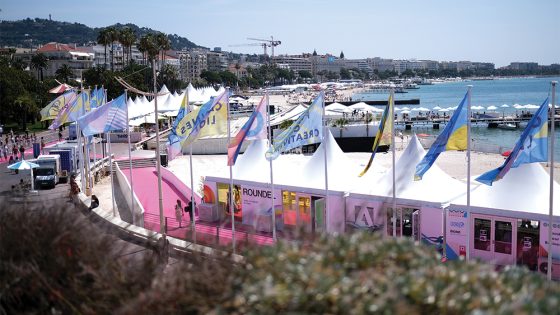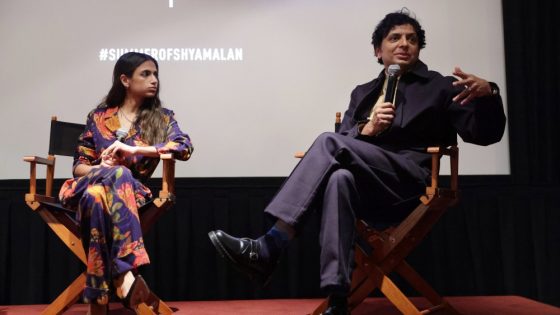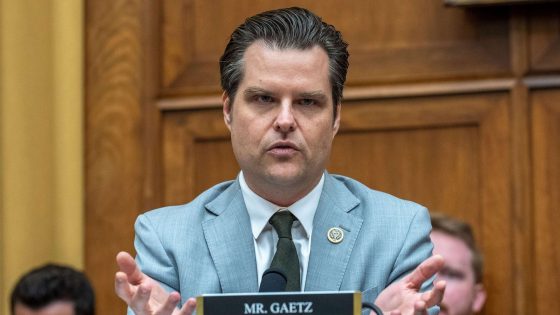As digital media mushrooms, advertising messages get disseminated across a growing variety of platforms — in increasingly inventive ways. Rather than the products being sold, it’s these marketing communications that take the spotlight at the Cannes Lions International Festival of Creativity. The 71st edition of the Lions awards runs June 17-21 in Cannes, France, to celebrate ingenuity in advertising, branding, marketing campaigns and marketing messaging.
“The ready availability of so many new tools makes the landscape wildly competitive, and most entry barriers have been eliminated,” says Madeline Nelson, head of U.S. independent label relations at Amazon Music, who serves at jury president for this year’s Entertainment Lions for Music competition. “Immediate insights like ‘views,’ ‘likes’ and audience demographics means that creators are able to pivot, adapt and update content based on real-time reactions and feedback.”
The Lions were founded in 1954, inspired by the Cannes Film Festival. But in contrast to its counterpart event’s tunnel-vision focus on artistry, the Lions are poised at the intersection of art and commerce, making their awards particularly prized because winners are celebrated for crafting marketing that delivers sales — as well as being cool.
Though Hollywood’s impressive cottage industry of creative boutiques that craft film and TV marketing campaigns don’t typically cast a big shadow at the Lions, advertising in every industry competes for these awards. In 2012, for example, the festival launched a Branded Content & Entertainment Lions section to recognize brands creating or integrating original content into campaigns, and has grown over the years. By 2019, the dedicated Entertainment vertical expanded to include an annual Entertainment Person of the Year award, first given to “Saturday Night Live” producer Lorne Michaels, and last year to multimedia comedian Kevin Hart.
The Lions event attracts 10,000-15,000 attendees each year, with awards conferred by blue-ribbon juries of advertising executives who sift through thousands of entries in a multitude of industries. Juries select top accolades the Grand Prix and Palme d’Or, the latter of which is given to the best production company, as well as select Lions award-winners in over 30 categories whose diversity, and specificity, grows each year.
“This year, we’ve launched the new Luxury Lion to provide a global benchmark for brands in the luxury space, recognizing and celebrating the most impactful creative work, experiences and creative business solutions for the luxury and lifestyle sector,” says Simon Cook, Lions CEO. The entire Lions operation is owned by publicly traded British media company Ascential.
As the industry gathers this year, artificial intelligence is expected to be a hot topic among the festival’s programs and speakers. But Geoff Edwards, who serves as this year’s jury president for the Entertainment Lions, indicates that AI-connected submissions are scarce thus far, “leading me to believe that we’re still at the very beginning of what I call ‘The AI Age of Discovery.’ Culture moves quickly, so I predict that, in the next few years, we’ll see the use of AI index up as brands better understand its capabilities.”
Edwards, who has won two Lions, is managing director, creative, at business agency Gale. The Los Angeles-based Edwards developed Apple marketing campaigns in TV and music, and is a former CAA executive.
Speaking of the tech giant, Apple was the toast of the town in 2023, winning a Lion Grand Prix for its “Relax, It’s an iPhone” commercial. This year, the tech giant quickly pulled and apologized for its iPad Pro commercial “Crush,” depicting traditional artistic tools being destroyed. Charting such precipitous shifts are not just within the wheelhouse, but the raison d’etre of the Cannes Lions festival: applauding the style of creative campaigns that are uniquely effective, and examining the substance underneath the ones that aren’t.
Source Agencies




